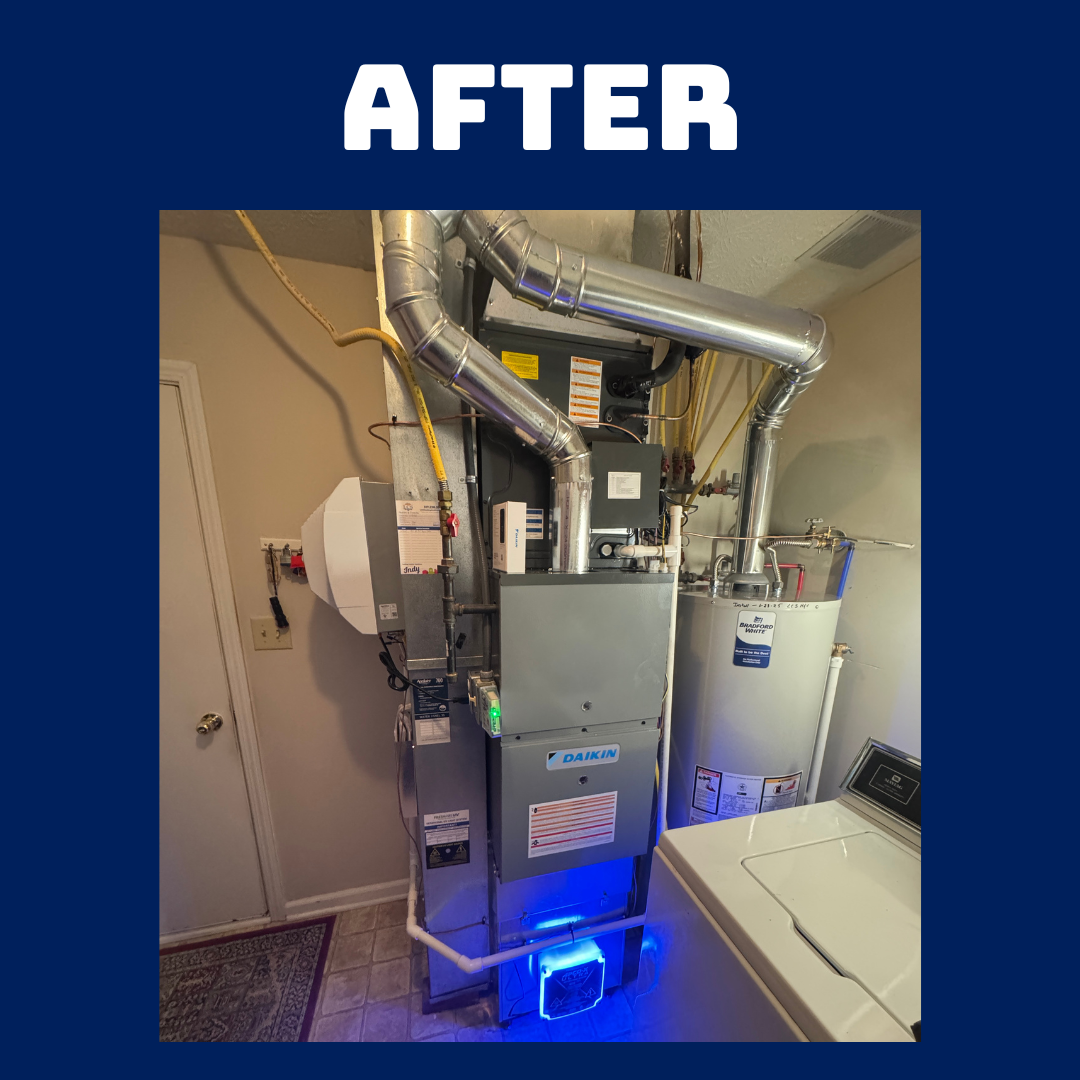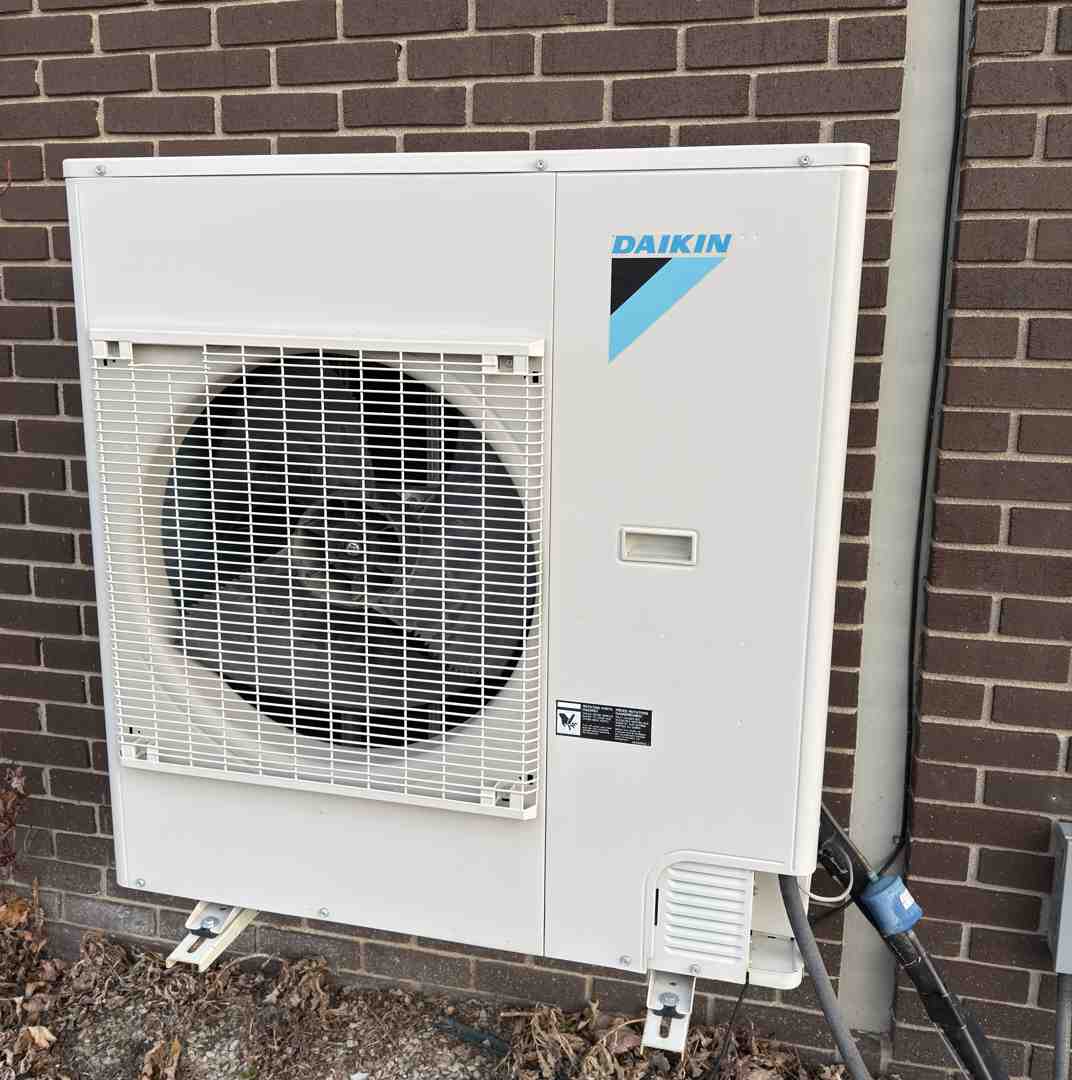Beyond the Hype: What an Annual Furnace Inspection Actually Does for Your Home
Why Every Indianapolis Homeowner Needs to Know What a Furnace Tune Up Really Does
A furnace tune up is professional maintenance that keeps your heating system running safely and efficiently through comprehensive inspection, cleaning, and adjustment of key components.
Quick Answer: What Does a Furnace Tune Up Include?
- Safety checks: Heat exchanger inspection, gas leak detection, carbon monoxide testing
- Efficiency improvements: Burner cleaning, airflow optimization, thermostat calibration
- Preventive care: Filter replacement, electrical connection tightening, moving parts lubrication
- Performance testing: Gas pressure adjustment, combustion analysis, system cycling verification
You've probably heard conflicting advice about annual furnace maintenance. Some say it's essential, others call it a money grab. The truth? Regular furnace tune-ups can save homeowners up to 30% on utility bills and extend your system's lifespan by 15-20 years.
But here's what most homeowners don't realize: a furnace tune-up isn't just about keeping your house warm. It's about preventing carbon monoxide leaks, avoiding costly emergency repairs during Indianapolis winters, and maintaining your manufacturer's warranty.
As one Indianapolis homeowner found, "I thought my furnace was fine until the technician found a cracked heat exchanger during the tune-up. That could have been a serious safety issue for my family."
The question isn't whether you need a tune-up—it's understanding what you're getting for your investment and when professional service is non-negotiable.
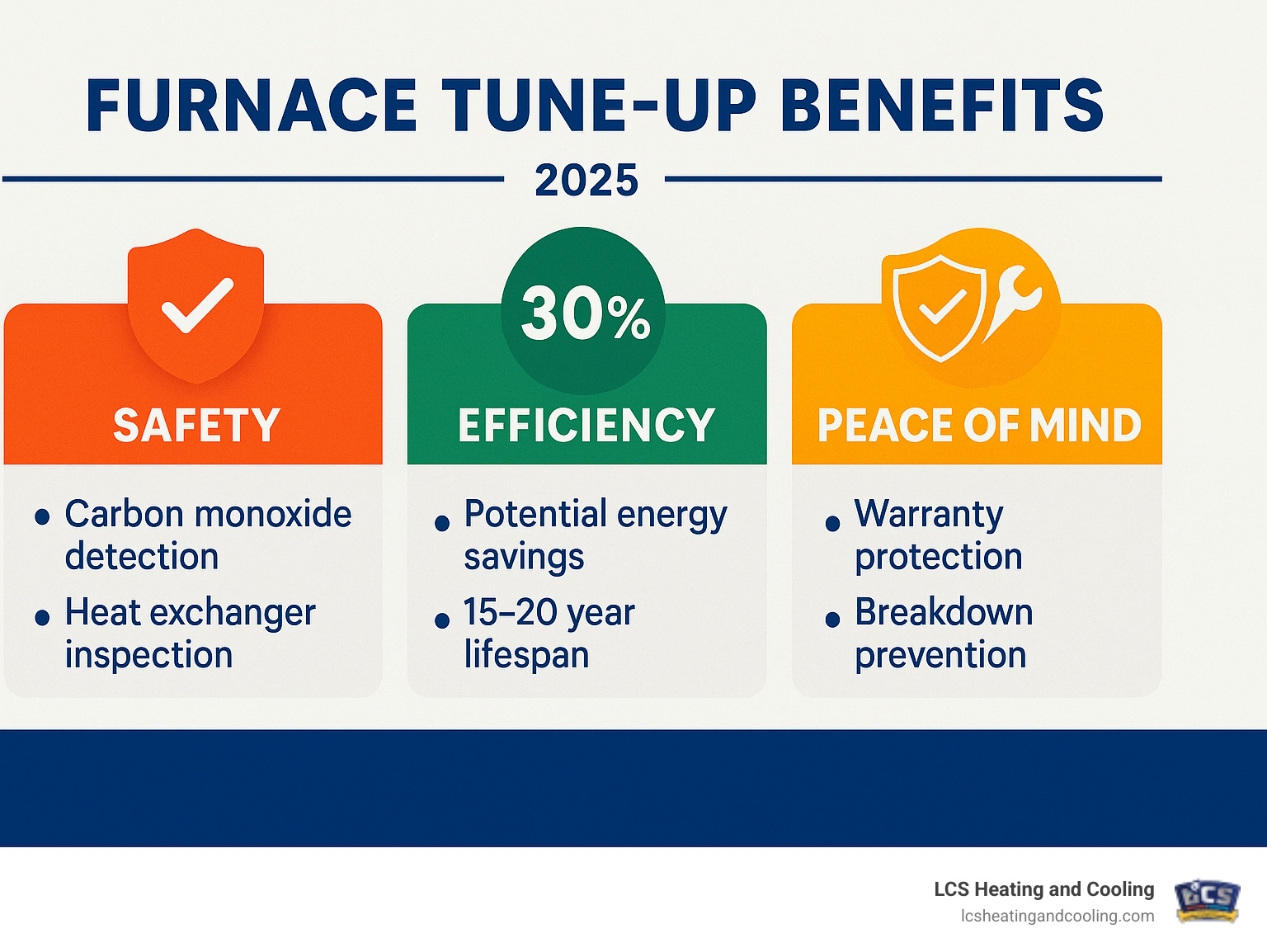
What a Professional Furnace Tune Up Actually Involves
When we talk about a professional furnace tune up, we're referring to a thorough system inspection and preventative care that goes far beyond a simple visual check. Think of it as a comprehensive health check-up for your heating system. Our certified technicians examine, clean, and adjust key components to ensure your furnace operates at peak performance, catching small issues before they become major breakdowns.
The Comprehensive Checklist
A typical furnace tune up is a multi-point process covering every crucial aspect of your system's health. A comprehensive service will address the following:
- Heat Exchanger Inspection: This critical safety check looks for cracks or corrosion. A damaged heat exchanger can leak dangerous carbon monoxide into your home.
- Burner and Flame Sensor Cleaning: Soot and debris on burners lead to inefficient combustion. We clean the burners and flame sensor to ensure proper ignition and efficient fuel burning.
- Blower Motor Check: The blower circulates warm air. We inspect its condition, clean the blower wheel, and lubricate moving parts to ensure smooth operation and prevent wear.
- Electrical Connections Tightening: Loose electrical connections can cause malfunctions and fire hazards. We inspect and tighten all connections for safety and reliability.
- Lubricating Moving Parts: Proper lubrication for moving parts like bearings reduces friction, prevents excessive wear, and extends component lifespan.
- Condensate Drain Flush: For high-efficiency furnaces, we flush the condensate drain to prevent clogs that can lead to water damage.
- Gas Pressure Test: We test and adjust gas pressure to ensure your furnace receives the correct amount of fuel for optimal combustion and efficiency.
- Thermostat Calibration: We check your thermostat's accuracy and calibrate it if needed to ensure it maintains consistent comfort and saves energy.
- Safety Control Testing: We test all safety controls, like the limit switch, to ensure they function correctly and will shut down the furnace in a dangerous situation.
- Combustion Analysis: Using specialized tools, we analyze exhaust gases to assess combustion efficiency and ensure harmful emissions are within safe levels.
- Flue Pipe and Venting System Inspection: We inspect the entire venting system for blockages or damage. Proper ventilation is crucial for safely expelling combustion byproducts.
- Ductwork Inspection: While not always standard, we can assess your ductwork for leaks or blockages that impact airflow and efficiency.
How It Impacts Your Indoor Air Quality
Your furnace's condition directly impacts the air you breathe. A furnace tune up is key to improving indoor air quality.
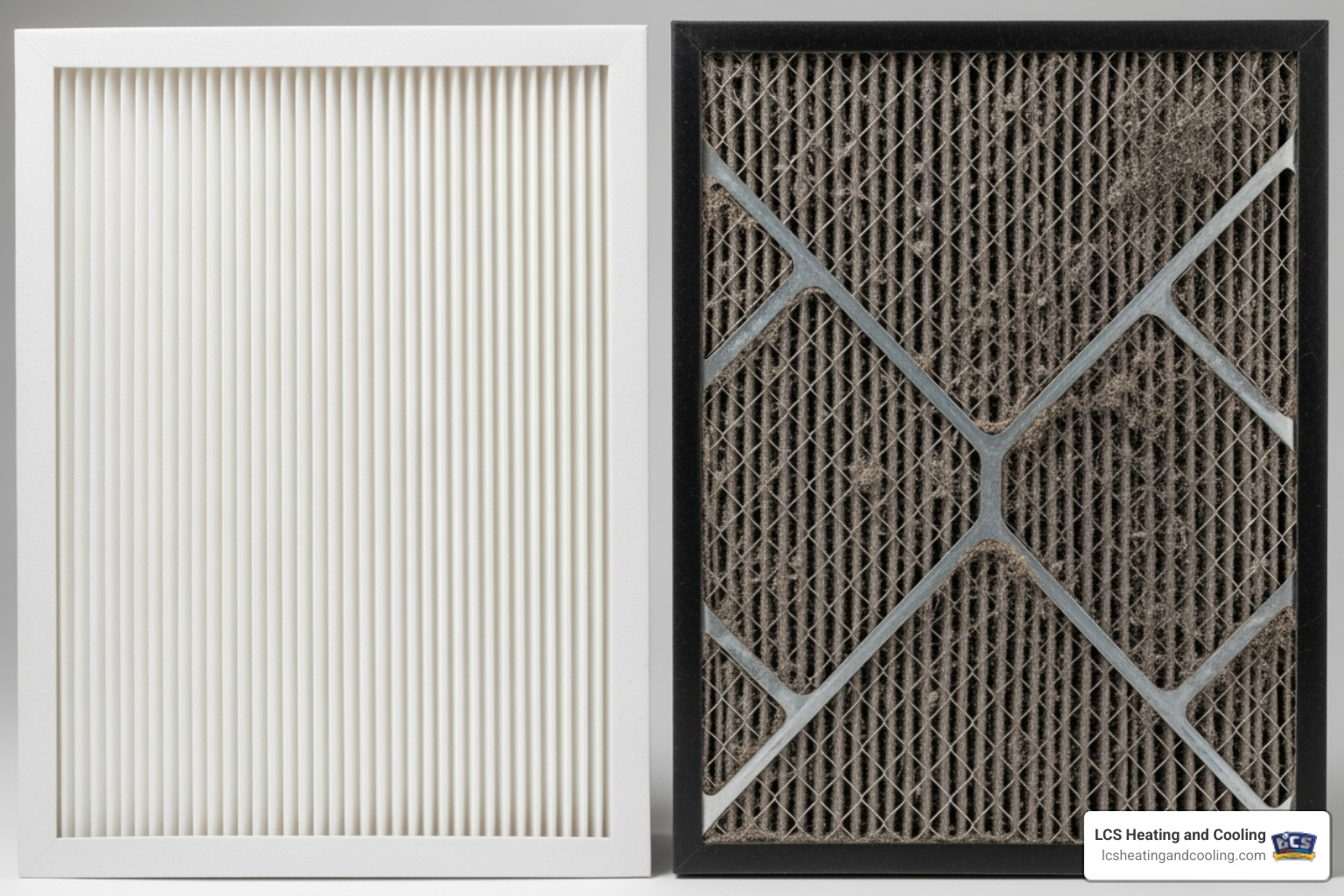
The most direct improvement comes from air filter replacement. A dirty filter restricts airflow and fails to trap dust, allergens, and other particles. During a tune-up, we inspect and replace your filter as needed, immediately improving your home's air. We recommend changing filters every 1-3 months.
Beyond the filter, we focus on blower wheel cleaning. A dirty blower wheel is inefficient and circulates dust. A clean blower and a fresh filter not only improve efficiency and prevent damage but also contribute to a cleaner, healthier home environment.
The Tangible Benefits: Safety, Savings, and Peace of Mind
When you invest in a regular furnace tune up, you're not just buying a service—you're purchasing protection for your family, wallet, and peace of mind. The benefits range from the air you breathe to the money you save each month. It's a choice between a small preventative cost now or a large emergency repair bill during a frigid Indianapolis winter.
The Energy Star maintenance checklist reinforces that regular maintenance is essential for system longevity, breakdown prevention, lower utility bills, and consistent home comfort.
Protecting Your Home and Family
Keeping your loved ones safe is the top priority. A furnace tune up is about preventing risks before they happen.
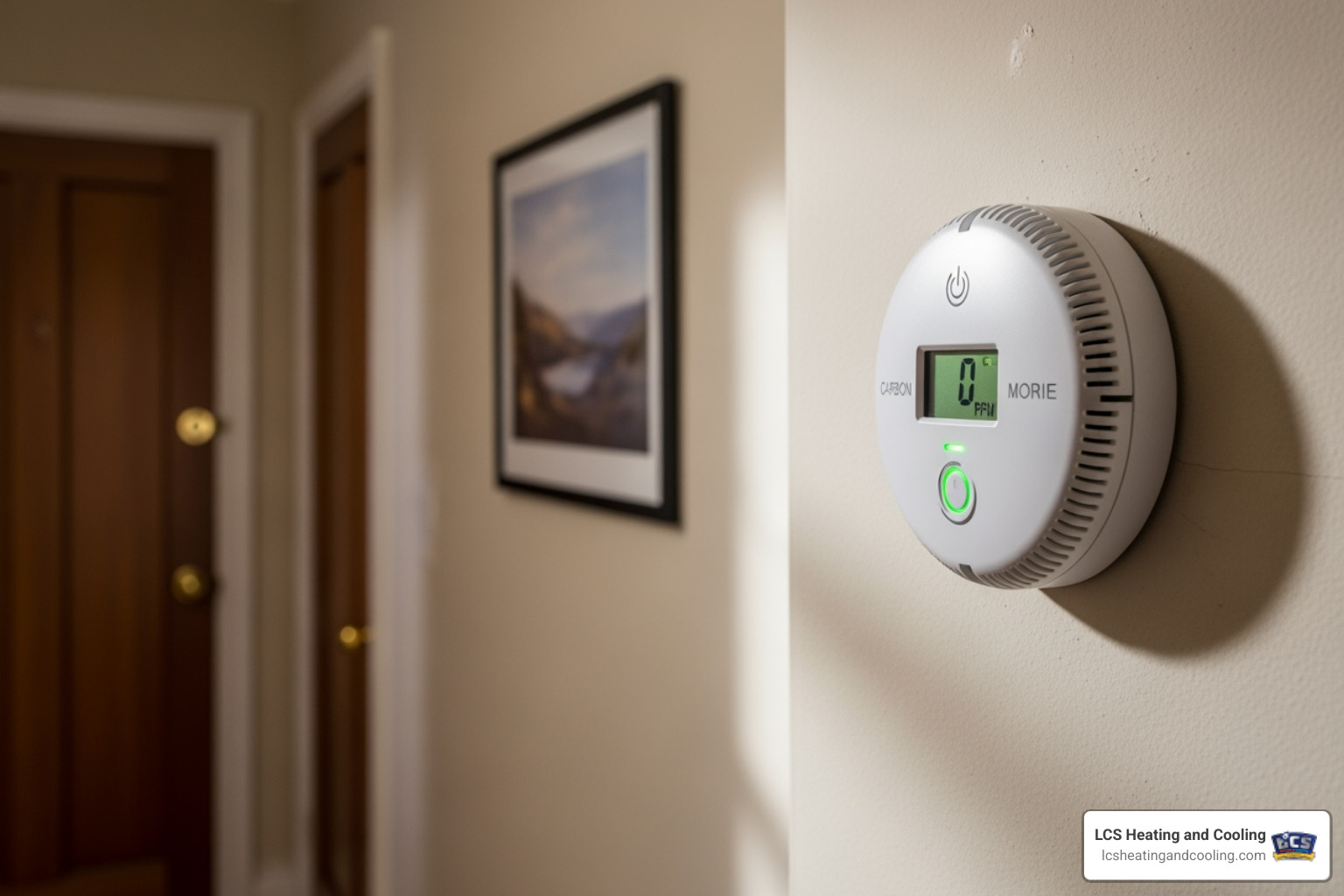
Carbon monoxide leak prevention is the most critical safety benefit. This invisible, odorless gas can be deadly, and a cracked heat exchanger is a common cause. We thoroughly inspect your heat exchanger and check your CO detectors.
Gas line inspection is another crucial check for natural gas furnaces. Our technicians examine every connection for potential leaks, which are hazardous to find on your own.
Electrical fire hazard reduction involves inspecting and tightening all connections, checking for corrosion, and ensuring all components meet safety standards to prevent fires.
Finally, we test all built-in safety controls. These systems are designed to shut the furnace down if something goes wrong—an emergency brake you want to know is working.
The Long-Term Financial Perks of a Furnace Tune Up
Regular furnace tune ups are one of the smartest financial investments for your home.
Reduced energy bills are an immediate benefit. A clean, efficient furnace works less to keep you comfortable, leading to improved efficiency savings up to 30% on utility bills.
Avoiding costly emergency repairs is where the big savings happen. Catching a small problem during a tune-up costs a fraction of a major breakdown during the coldest week of the year.
Extending your furnace's lifespan is a huge long-term benefit. With proper care, your system can last 15-20 years or more, delaying expensive replacement costs.
Don't forget manufacturer warranty compliance. Most warranties require proof of annual professional maintenance to remain valid. Skipping a tune-up could void your warranty, leaving you responsible for repair costs.
A furnace tune up pays for itself through lower energy bills, fewer repairs, and longer equipment life. It's a rare case where protecting your family is also the smart financial choice.
DIY Checks vs. Professional Service: What You Can (and Can't) Do
While some DIY furnace tasks are useful, knowing when to call a professional is crucial for your family's safety. Certain aspects of a furnace tune up require specialized expertise and tools. Let's break down what you can handle and when it's time to call the pros.
Simple Tasks for Homeowners
These simple steps can make a real difference in your system's performance between professional visits.
Changing air filters is the most important DIY task. Check your filter monthly and replace it every 1-3 months (more often with pets or allergies) to improve efficiency and air quality.
Keeping the furnace area clear is a key safety measure. Give your furnace at least three feet of clear space on all sides, removing any flammable materials or storage boxes.
Cleaning vents and registers with a vacuum removes dust that can restrict airflow. Also, ensure all vents are open and unblocked by furniture.
Checking the thermostat is an easy win. Make sure it's set to "heat" for the season, test its accuracy, and replace batteries as needed.
Monitoring for strange noises or smells is critical. If you hear unusual banging, rattling, or squealing, or smell gas, call a professional immediately.
Why You Need a Certified Technician
DIY tasks are helpful, but a professional furnace tune up involves complex work that requires training, specialized tools, and a respect for the potential dangers.
Complex diagnostics are where our training shines. We use advanced tools for combustion analysis to check how safely and efficiently your furnace burns fuel, spotting problems invisible to the naked eye.
Electrical testing involves safely checking voltage and amperage. This requires specialized equipment and knowledge to prevent injury or damage to your furnace.
Handling refrigerants and gas lines is strictly for professionals. Working with gas lines requires licensing, and handling refrigerant requires EPA certification.
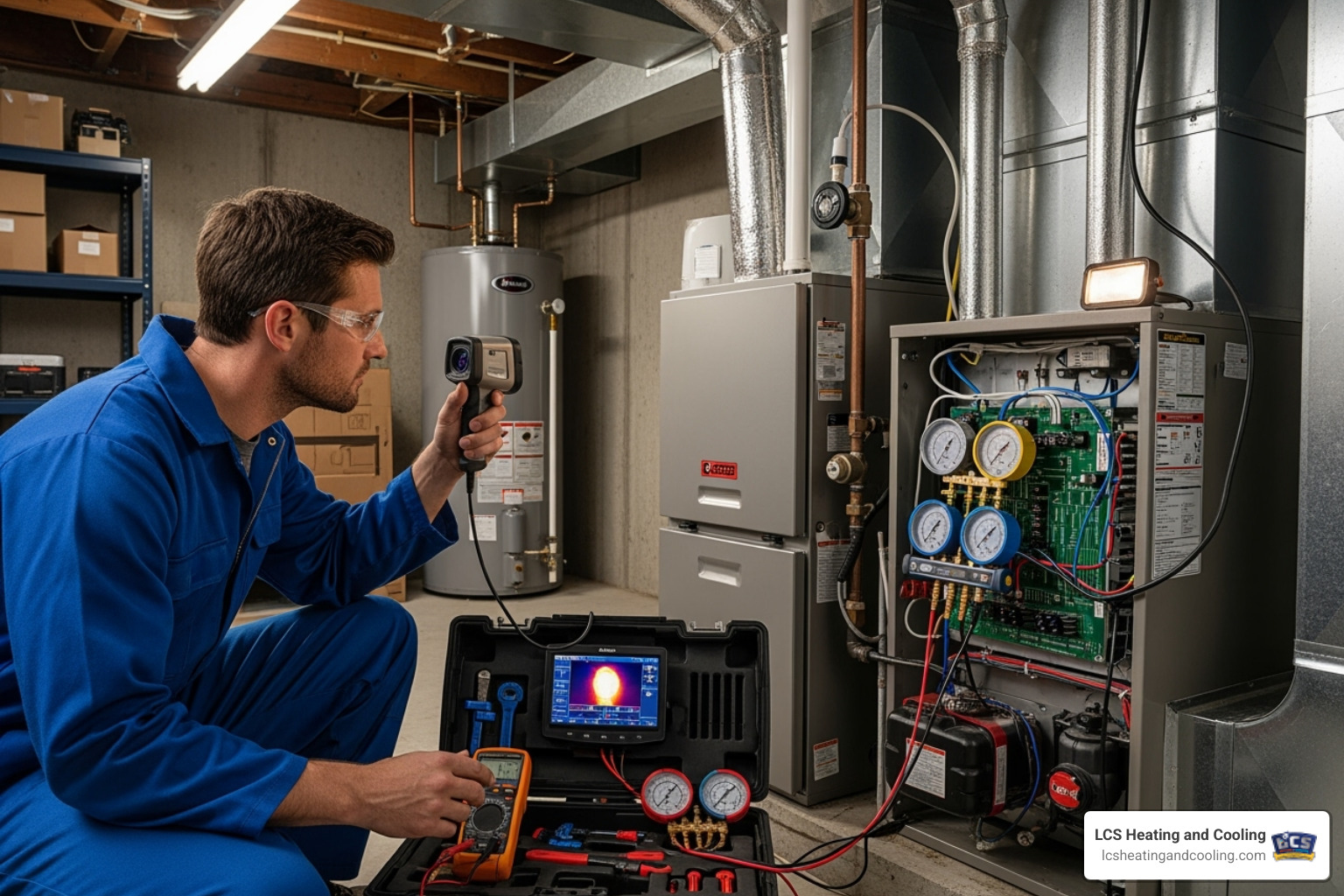
Ensuring code compliance is another non-negotiable area. We stay current on all local and national safety regulations to ensure your system operates safely.
Most importantly, we can identify hidden issues before they become expensive emergencies. We're trained to recognize subtle signs of wear or potential leaks that can save you from a system failure on the coldest day of winter.
At LCS Heating and Cooling, our 7-Star Concierge Service brings this expertise to Indianapolis homeowners. We empower you with knowledge while handling the complex, dangerous work ourselves, ensuring your comfort and safety.
Timing is Everything: When and Why to Schedule Maintenance
Scheduling your furnace tune up is like buying a winter coat before the first blizzard. Proactive planning helps you avoid the winter rush and prevents unexpected breakdowns when Indianapolis temperatures drop. When you schedule maintenance ahead of the heating season, you're in control, not at the mercy of emergency repair schedules and higher costs.
The Best Time of Year to Schedule
Autumn is your sweet spot for scheduling a professional furnace tune up, ideally in September or early October. This timing offers several advantages.
It prepares your system for the pre-heating season. When the first cold snap hits, your furnace will be ready to perform.
Avoiding the winter rush is another huge benefit. Once temperatures drop, HVAC companies are flooded with emergency calls. By scheduling in fall, you get better appointment availability and avoid the stress of waiting in the cold.
This timing also ensures system readiness. If our technician finds an issue, there's plenty of time to order parts and complete repairs before you need heat. You may also find off-season discounts and more flexible scheduling.
Signs Your System is Overdue for a Furnace Tune Up
If you miss the fall window, it's never too late for maintenance. However, certain warning signs indicate your system needs immediate professional attention.
Unusual noises like banging, rattling, or squealing are red flags. These aren't normal sounds; they indicate your furnace needs help.
Increased energy bills without a change in usage mean your furnace is working overtime and losing efficiency.
Uneven heating that creates hot and cold spots suggests your system isn't distributing air properly.
Frequent cycling (the furnace turning on and off repeatedly) wastes energy and puts extra strain on components.
A yellow pilot light instead of a healthy blue one signals incomplete combustion, which can produce carbon monoxide and requires immediate attention.
Poor air quality, such as increased dust or unusual odors, can also point to a furnace issue.
Ignoring these signs leads to more expensive and inconvenient repairs. If these symptoms appear, call for a furnace tune up regardless of the season.
Frequently Asked Questions about Furnace Tune-Ups
Homeowners throughout Indianapolis, Carmel, and Fishers often ask the same questions about furnace tune-ups. Let's tackle the most common ones.
How long does a furnace tune-up take?
A typical furnace tune-up takes 1 to 2 hours. The exact time depends on your system's age and condition. A well-maintained furnace is quicker, while a neglected one or a system needing minor repairs may take longer. Our technicians are efficient and thorough, ensuring the job is done right without cutting corners.
Do I really need a tune-up every single year?
Yes, annual maintenance is essential. Skipping it is a gamble for several reasons.
First, most manufacturers require annual service for warranty protection. Skipping a year could void your warranty, leaving you to pay for repairs that should have been covered.
Second, annual tune-ups prevent wear and tear from becoming a major problem. An annual furnace tune up catches minor issues early, maintains efficiency, and keeps your system running smoothly.
Does a new furnace need a tune-up?
Yes, even brand-new furnaces need annual maintenance. The primary reason is to maintain your warranty from the first year. Most warranties require it from day one.
A first-year tune-up also ensures proper installation and operation, allowing a technician to make minor adjustments to optimize performance. It also establishes a maintenance baseline, creating a record of your system's peak performance that makes it easier to spot future issues.
Conclusion
A professional furnace tune up is more than a checklist item; it's a smart investment in your family's safety, your finances, and your peace of mind. The benefits are clear: safety from risks like carbon monoxide, efficiency improvements that can cut utility bills by up to 30%, and the peace of mind from knowing your system is reliable and your warranty is protected.
While DIY tasks are helpful, only a certified technician can perform the complex checks—like combustion analysis and gas leak detection—that prevent expensive emergencies. In Indianapolis, where winters are harsh, proactive maintenance is key.
At LCS Heating and Cooling, our 7-Star Concierge Service is built on clear communication, respect for your home, and providing lasting home comfort. We believe you deserve a thorough service that ensures your furnace is ready for the season.
Your furnace works hard all winter. Isn't it time you returned the favor?
Schedule your professional furnace inspection in Indianapolis today and experience what real peace of mind feels like.
